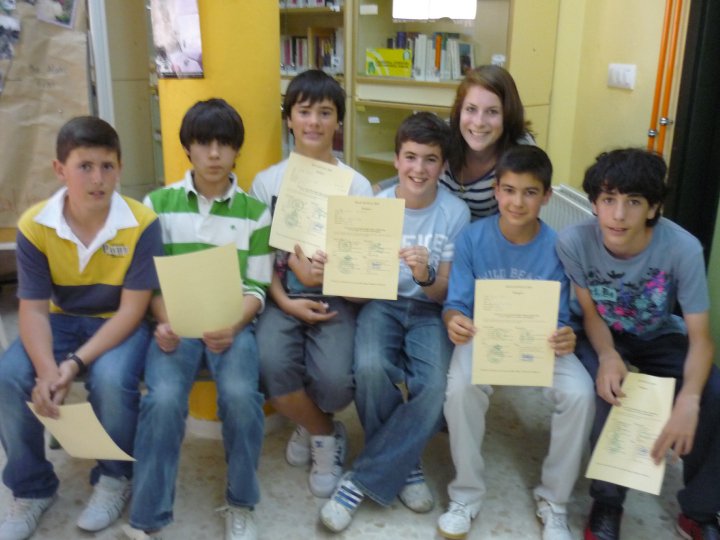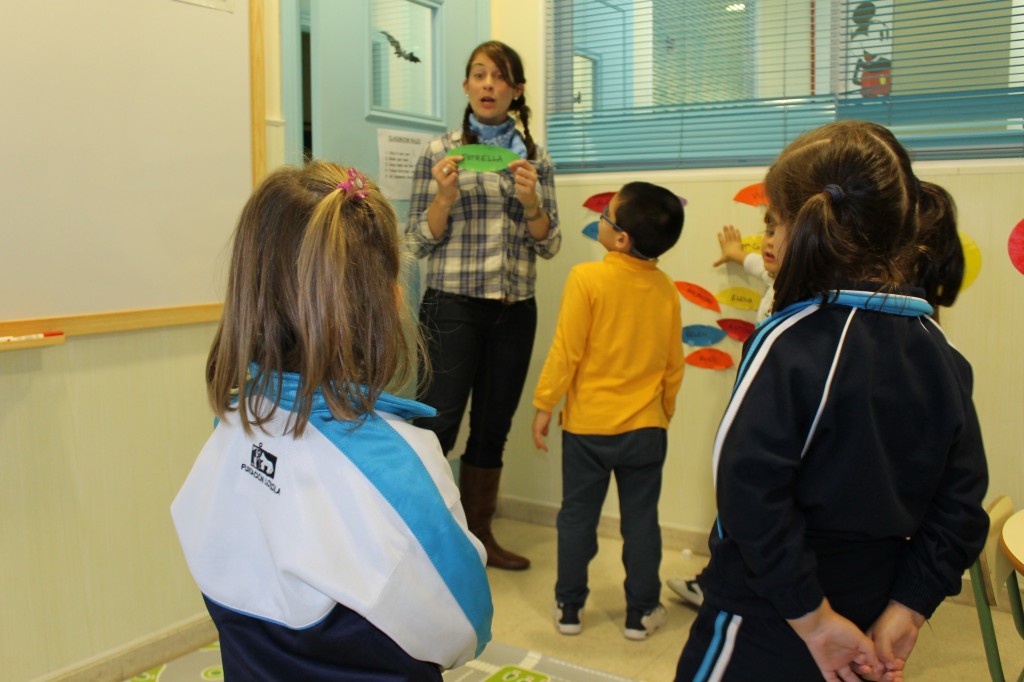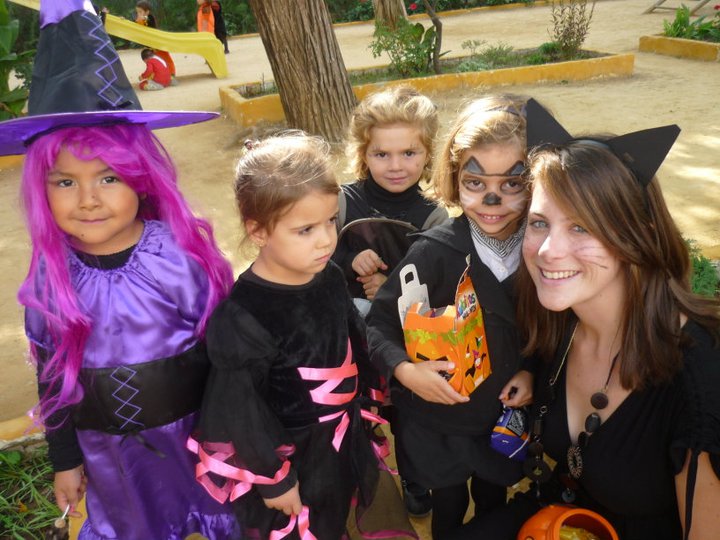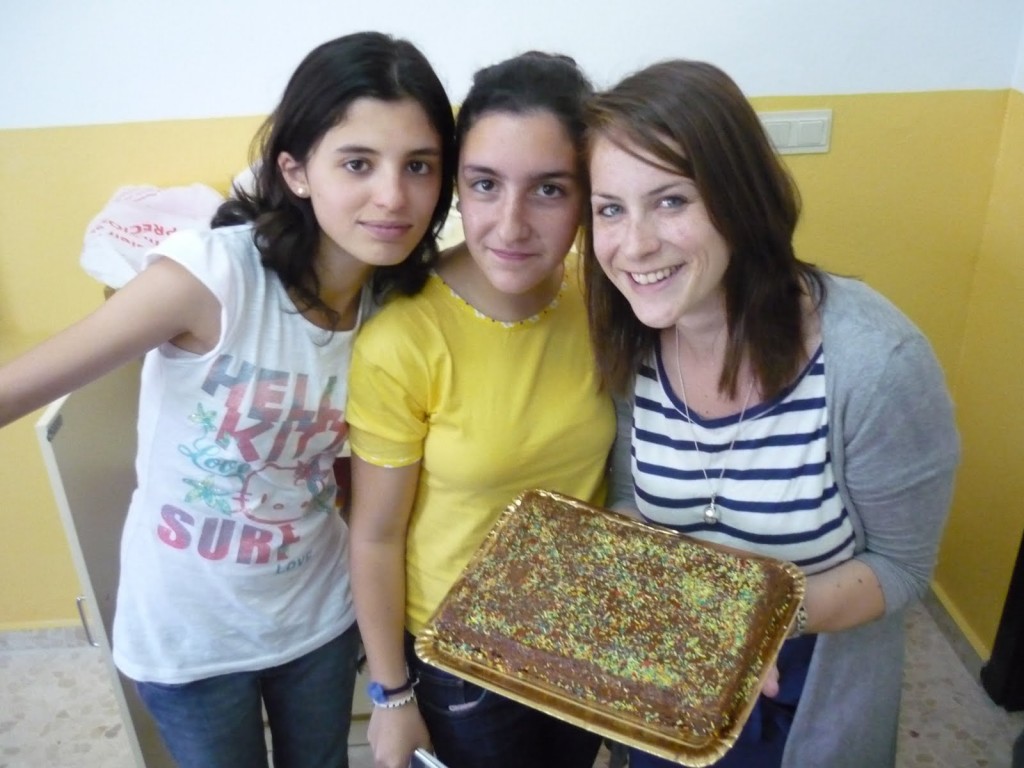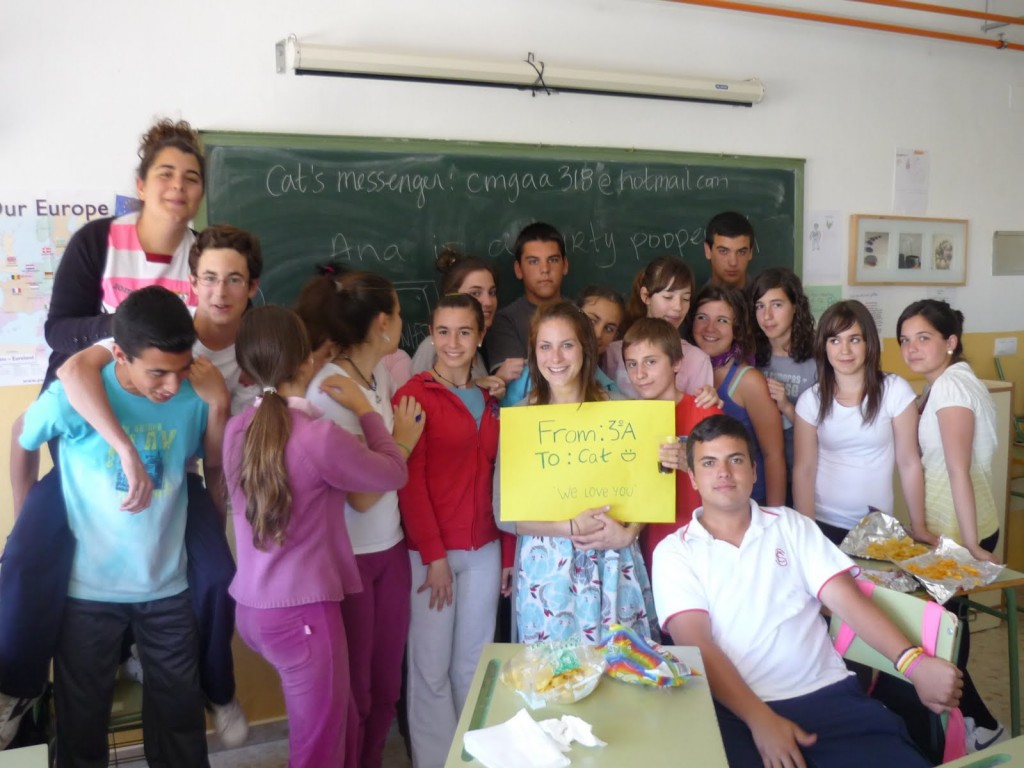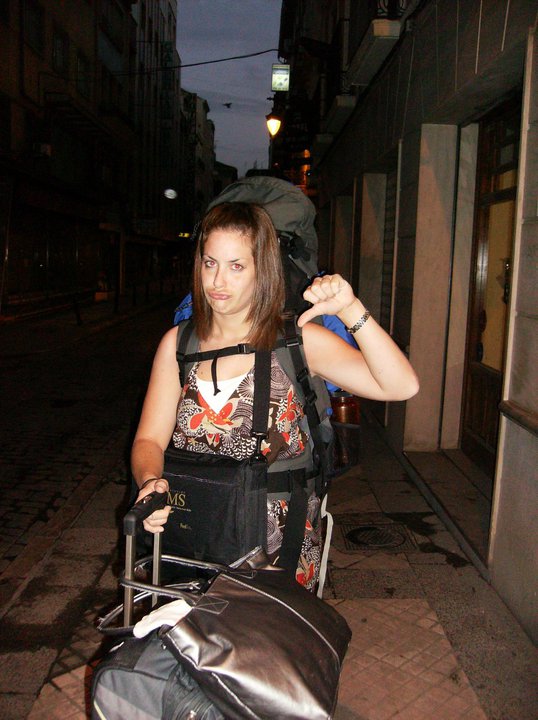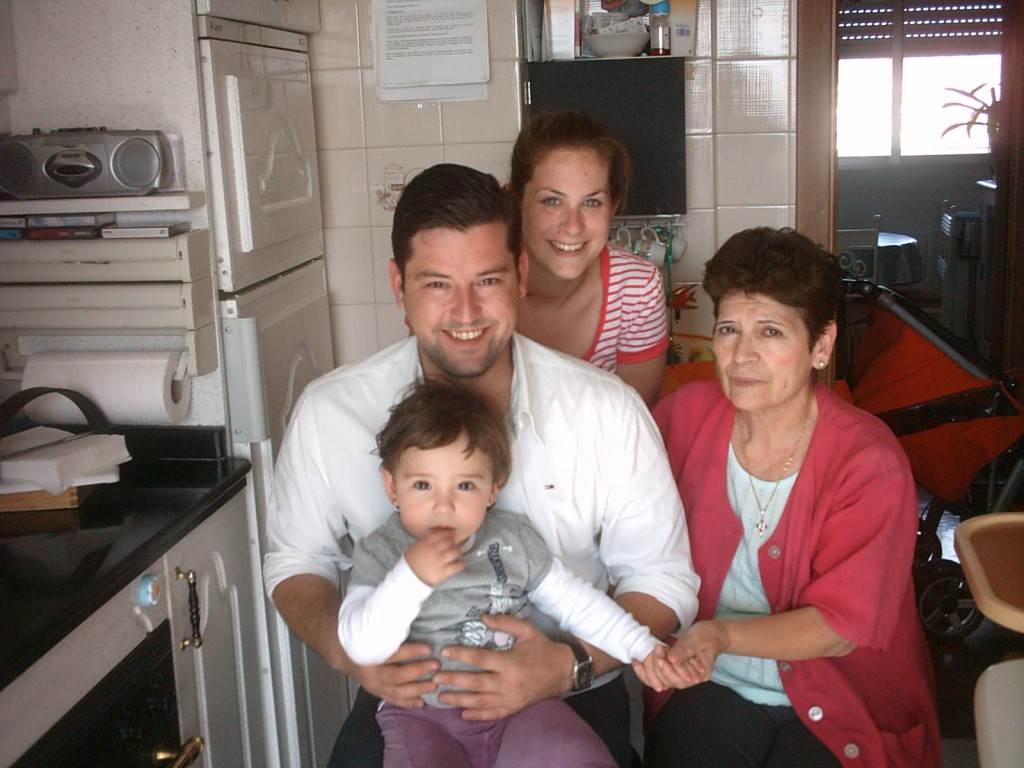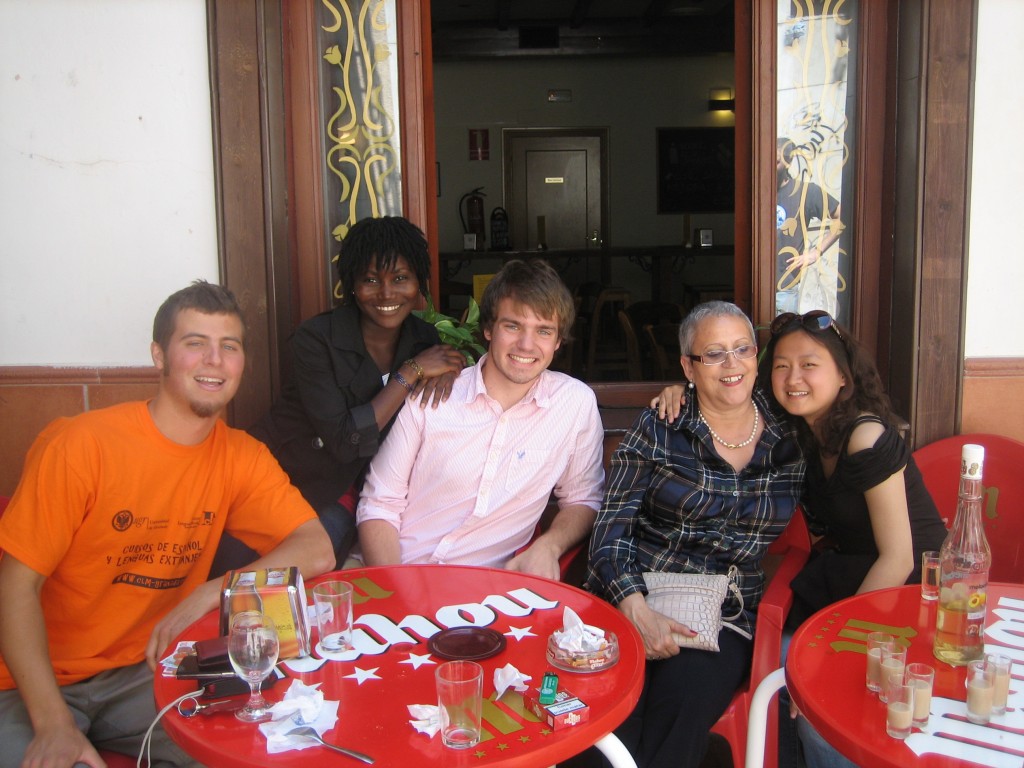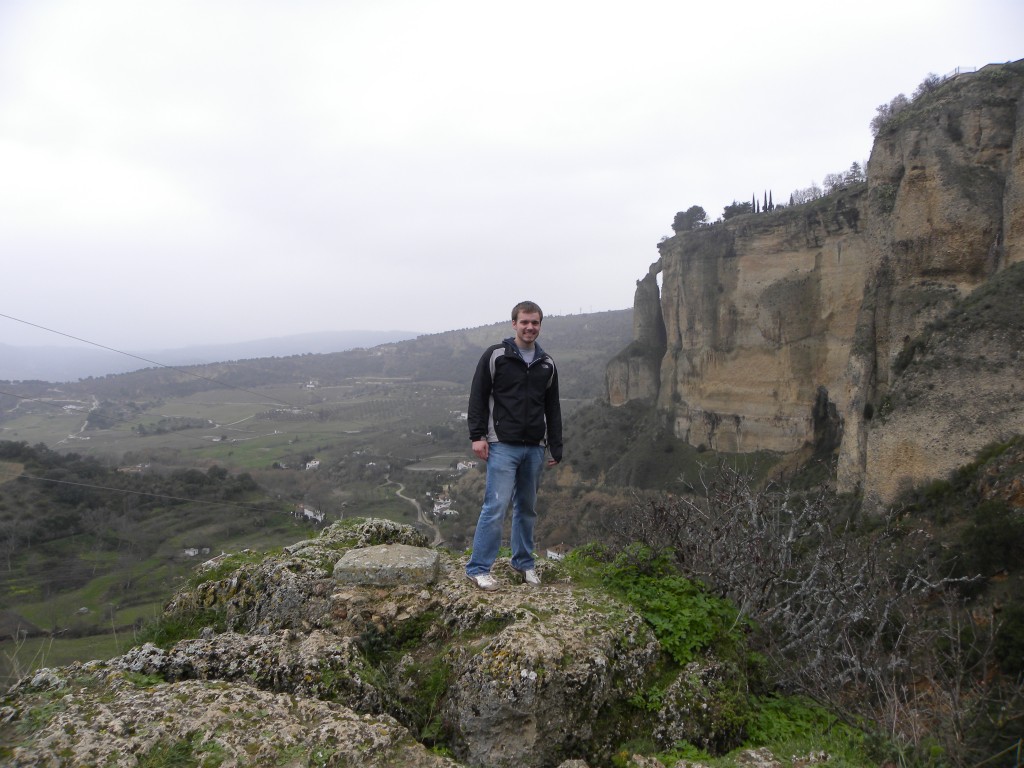The most common question I get when meeting new people in Spain is, ‘Why did you originally come here/go to Spain/decide on Seville/move abroad to work as a teacher?’
I could answer this question in volumes, but it’s just easier to say, to travel, to learn Spanish, and to try out teaching English as a foreign language.
In March 2007, I found out about the Auxiliar Program, known in the United States as the North American Language and Culture Assistant Program. I gathered the recommendation letters, drafted a letter of intent in my best 101-class Spanish and sent off a packet to Madrid. Spending a year in Spain for 631€ a month sounded like a good plan.
This is where I shake my head and think, If only I knew that this was the start of everything.
I spent three years working as an auxiliar de conversación in a high school in Olivares (Seville). It has been, to date, my favorite job, one which I looked forward to going to every day. I got to talk all I wanted, plan activities as diverse as a gap fill about Evil Knievel to a Halloween party, and my coworkers bought me breakfast every day.
My last day at IES Heliche was gut wrenching, but, I came away with skills I didn’t think I’d ever acquire, and the job plus my formal training with an academically challenging and internationally recognized online TESOL diploma has led to others in the same sector in Seville. There are many nay-sayers who are quick to blame the program for its lack of organization or slow payment process, but I firmly believe that you get out what you put in.
And now they give you materials about how to teach. I was thrown to the lions (lions that looked a lot like 13-year-old kids).
I receive emails everyday about teaching abroad. Given how difficult it’s getting to stay under the radar without a visa, I always recommend the auxiliar program or a similar gig which grants you a student visa and health insurance, along with a stipend. There are 3,000 jobs up for grabs around Spain which will pay you between 700€ and 1000€ a month in exchange for working 12-16 hours, and now countless companies are offering similar positions.
Let’s practice a bit of first conditional, in which we talk about circumstance which can be true in the present or future.
If you go to Spain to teach,
You’ll learn Spanish.
Immersion learning is one of the best ways to acquire a language. From dealing with the bureaucratic mess that can be the Spanish government to living with international students or workers, there is no doubt that your spoken Spanish will improve. Try turning off the subtitles on the TV, reading the local paper and chatting up the abuelos in the bar down the street. When I first met the Novio, he told me my castellano was gorgeous, but my mistakes made it difficult to understand me.
Nowadays, he’s threatening to not take me to anymore Betis games because my potty mouth is too much for the other fans around me. Spain is a great place to put your textbook Spanish from high school to use (and you’ll finally get to exercise the “Oh, they only use that in Spain” vosotros form!).
Spain is also home to several dialects and even another language, so if you geek out about linguistics, Spain will be an audible treat for you.
You’ll have ample time to travel.
Ever heard that Spanish people love to party? It’s true, to an effect, but there are multiple holidays that will make a long weekend (you’ll likely work just four days a week) even longer. There are a dozen national holidays that fall within the school year. Plus, you’ll get local and regional holidays off, plus two full paid weeks during the Christmas holidays and another during Holy Week. If you’re in Málaga or Bilbao, you also get another week off somewhere because the local festivals are during August.
You’ll travel for cheap.
The running joke when I was an auxiliar was, “Where is Cat going this weekend?” Since coming to live in Spain as an English teacher, I’ve been to every autonomous community and 20 countries. Budget airlines abound in Europe, and Spain has several hubs along the coasts and in Madrid. Sign up for offers from every airline that flies out of your nearest city, and you’ll be surprised how cheap it can be to get around Europe.
Apart from that, Spain’s network of public and private transportation is top-notch. All major cities are connected via rail, and private bus companies are a comfortable way to travel both long and short distances.
Classes are often held in the evenings, which also gives you time in the morning for online teaching gigs or hours to devote to personal or professional deveelopment.
You’ll have people looking out for you.
When my mother first met my boss from the auxiliar program, Nieves, she gave her a hug. It had been three years since I’d worked in Olivares, but Nieves and I have remained close. My mom thanked her over and over for looking after me when I first arrived to Seville without a single contact and flailing Spanish skills.
Now that the language assistant program isn’t new, its participants know you’re likely in your 20s and far away from home. I was taken care of like one of their own, even offered winter coats, free rides to work and the opportunity to take part in several cultural experiences (I spent the first weekend in Seville betting on horses at the Pineda racetrack and then stayed out until 8am). That said, everyone has a different experience with regards to coworkers, but attitude can go a long way to forging healthy relationships with them.
You’ll gain international experience.
Getting a job in America seems scary competitive, so having international experience on your resume will be a great talking point in an interview. Apart from learning Spanish and trying out something new, be sure to tell a potential employer that you’ve picked up valuable problem-solving skills and explored diverse interests. Network on LinkedIn before returning home, keep a blog of your experiences and be sure to make your year or two teaching in Spain stick out.
You may just get sucked into it, too.
You’ll learn about Spanish culture, and not from a textbook.
They say experience is the best teacher, so forget all of the business you learned in high school from your textbook. Without a doubt, living in Spain and working as a teacher has given me first-hand knowledge of Spanish schools and Spanish life.
As a tutor, I became friends with several of the families who employed my services. This meant offers to attend first communions, family luncheons and even ride in horse carriages during the Feria. Inviting me into their homes meant I got an idea of how Andalusian families lived, from crowding around their braseros when it got cold to checking out what Spanish kids ate for merienda. While I only moonlight tutor now for one family, I’ve remained in contact with several of the households who once paid my groceries and travel habit.
You’ll have the visa and health insurance figured out.
Coming to work in Spain legally if you’re a North American is difficult. The various teaching programs offered to native speakers have the advantage that you’re awarded a student visa for the duration of the program which is available for renewal, as well as private health insurance during that time. I’ve had all sorts of work-ups and check ups done, just for the sake of milking it for what it’s worth. The student visa will also entitle you to student discounts and the ability to travel around Europe longer than a Schengen visa can provide.
To be clear, the auxiliar program through the Spanish government employs you for either 12 or 16 hours a week, which also gives you time outside of work commitments to try other things. I’ve taken flamenco and French class, worked for a student travel company and still found time to do tutoring and partake in the siesta culture.
You’ll get to live in Spain for an academic year, and you’ll get a stipend to do it.
You get paid to talk in your native tongue a dozen hours a week. If that’s not reason enough, I don’t know what is.
Not too keen on an assistant teaching position, or you’ve already gotten around the visa issue? In Seville alone, 26 new English language academies opened for the 2012-13 school year, and it’s a growing sector. Once you’ve got a TEFL degree, finding a place to work is far easier. There are also many alternatives to the auxiliar program that still get you the necessities to live here, and I’ve broken them all down for you.
If you are an auxiliar, tell me about the good and the bad of your position. Would you recommend it to a friend?
